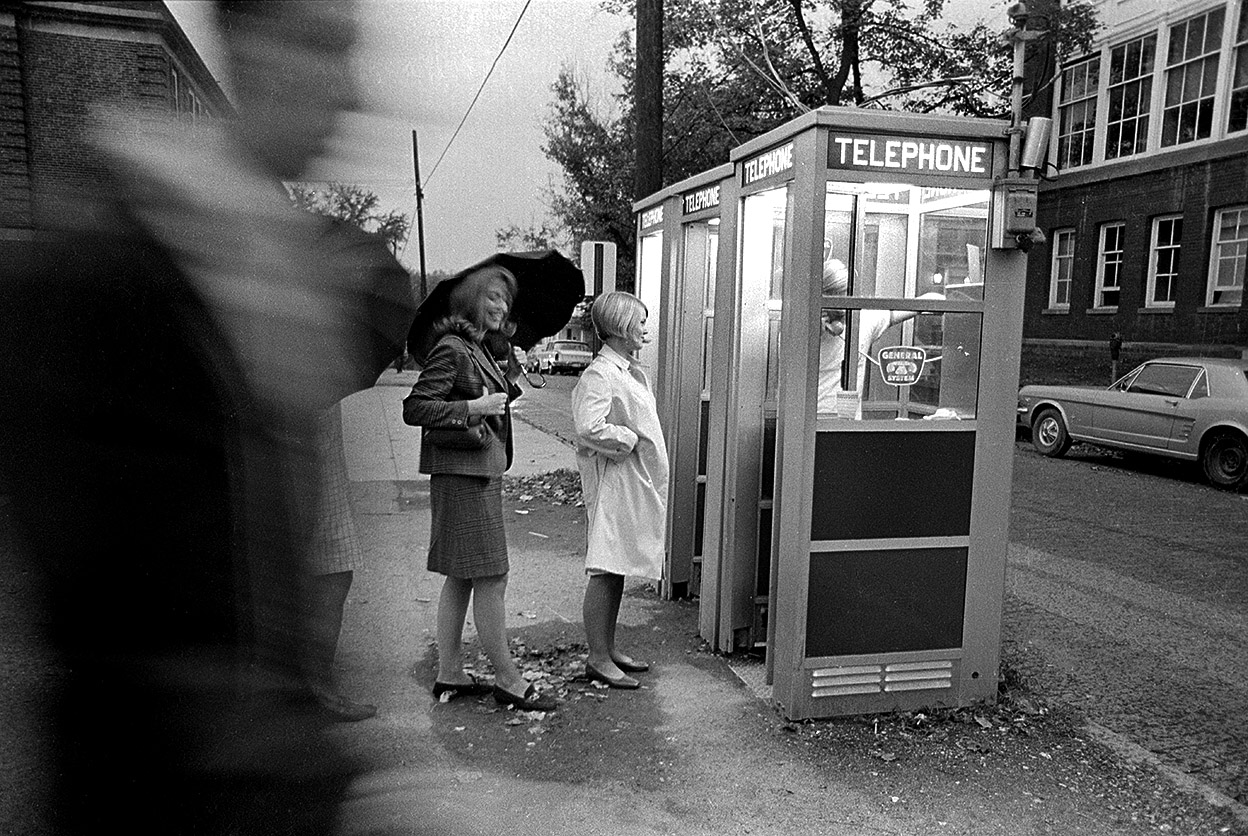
Fifty years ago today, SCOTUS decided Katz v. United States, 389 U.S. 347 (1967), which was the genesis of the reasonable expectation of privacy standard. LAPD vice officers investigating Katz as a college basketball bookmaker noticed he regularly used a bank of three payphones on a Los Angeles street corner. They put microphones on top of the phone booths to record his conversations between February 19-25, 1965, and recorded his end of the bookmaking calls. The rest is history.
Actually, the phrase reasonable expectation of privacy came from Justice Harlan’s concurrence, Katz, 389 U.S. at 360-61 (Harlan, J., concurring):
I join the opinion of the Court, which I read to hold only (a) that an enclosed telephone booth is an area where, like a home, Weeks v. United States, 232 U.S. 383, and unlike a field, Hester v. United States, 265 U.S. 57 , a person has a constitutionally protected reasonable expectation of privacy; (b) that electronic as well as physical intrusion into a place that is in this sense private may constitute a violation of the Fourth Amendment; and (c) that the invasion of a constitutionally protected area by federal authorities is, as the Court has long held, presumptively unreasonable in the absence of a search warrant.
As the Court’s opinion states, “the Fourth Amendment protects people, not places.” The question, however, is what protection it affords to those people. Generally, as here, the answer to that question requires reference to a “place.” My understanding of the rule that has emerged from prior decisions is that there is a twofold requirement, first that a person have exhibited an actual (subjective) expectation of privacy and, second, that the expectation be one that society is prepared to recognize as “reasonable.” Thus a man’s home is, for most purposes, a place where he expects privacy, but objects, activities, or statements that he exposes to the “plain view” of outsiders are not “protected” because no intention to keep them to himself has been exhibited. On the other hand, conversations in the open would not be protected against being overheard, for the expectation of privacy under the circumstances would be unreasonable. Cf. Hester v. United States, supra.
The Supreme Court called it that in Terry v. Ohio, 392 U.S. 1, 9 (1968), the next year.
The reasonable expectation of privacy was never an exclusive test, but one wouldn’t know it from the case law which almost always just talked about the reasonable expectation of privacy. Notably, the court never rejected the prior “constitutionally protected area” test (note that Harlan melded them together) and never said that trespass was being rejected: “the ‘trespass’ doctrine … enunciated [in prior cases] can no longer be regarded as controlling.” Katz, 389 U.S. at 353. [Although there was unfortunate language in standing cases saying that trespass wasn’t the standard.]
The reasonable expectation of privacy wasn’t a good fit for the GPS case of United States v. Jones, 565 U.S. 400 (2012),* or the curtilage case of Florida v. Jardines, 569 U.S. 1 (2013), so trespass was used.
Still, reasonable expectation of privacy regularly appears in the case law and it figures in the pending third-party data case of Carpenter v. United States argued November 29th. My opinion of Carpenter isn’t really worth repeating to add to the noise because my opinion doesn’t count. But, from reports of the oral argument, the reasonable expectation of privacy or some form of it and trespass will be determinative: Despite the entrenched third-party doctrine from 1976, do we have a reasonable expectation of privacy v. the government in personal data gathered by people we do business with in the computer age? Because of internet commerce, our lives can be tracked from our data, just like our movements can by GPS.
The people think so. The question is whether the law will 50 years after Katz and 40 years after the third-party doctrine. I, for one, nervously await.
_______________
* FYI: The Fifth Edition was postponed until Jones was decided, and, as a result, Chapter 3 was produced last and named “Privacy and Trespass.”

